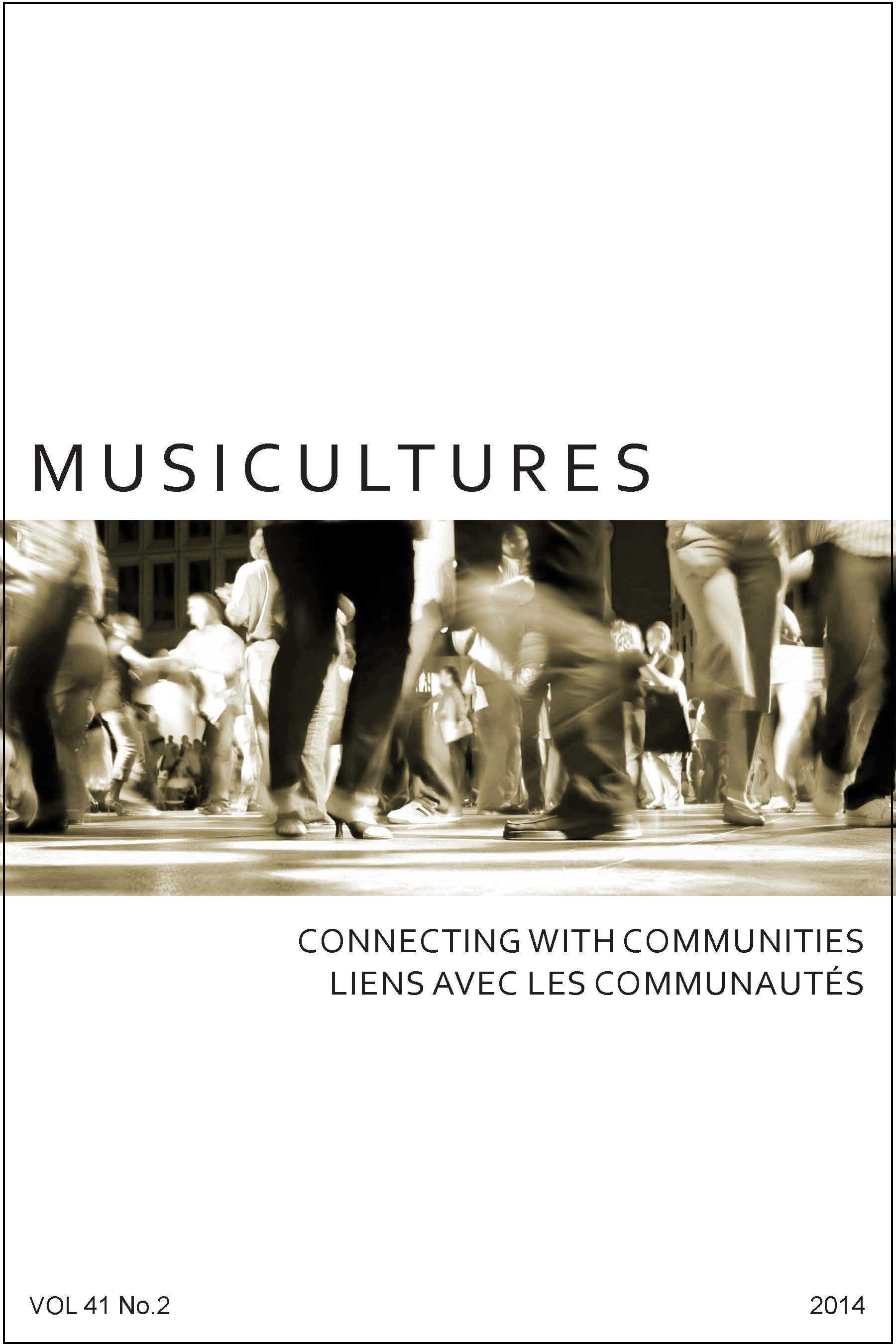Abstract
Aesthetic Systems is an original theory to explain how aesthetic resources are made, shared and used in the formation of art works and of collective and individual subjectivities. Aesthetic systems theory has ontological, epistemological and methodological implications for the study of aesthetics, aesthetics education and the cultural studies of music, and argues for community-engaged aesthetics research. The most striking implication of aesthetic systems is the methodological requirement to undertake community-engaged critical dialogical research informed by critical pedagogy, ethnomusicology and the cultural studies traditions. This article is both the story of the intellectual partnership that built Cipher5, an Edmonton-based hip hop research/study group and an argument for the necessity of community-engaged cartographies of mediation to shed light on the relationship between the formation of subjectivities and aesthetic education. If aesthetic systems form subjectivities, how might music education programs use this knowledge to inquire after the formation of student subjectivities?- The author retains copyright over the work.
- The author grants the journal owner (The Canadian Society for Traditional Music / La Société canadienne pour les traditions musicales) an exclusive license to publish the work.
- The author may post a pre-print or post-print version of the work (see definitions below) on a personal website for up to twelve months after the work is published in MUSICultures. After twelve months, the pre-print version must be replaced with the published version.
- The author may deposit the published PDF of the work in a non-commercial online repository twelve months after the work is published in MUSICultures, or any time thereafter.
- Any such deposit must include a link to the work on the MUSICultures website, e.g., https://journals.lib.unb.ca/index.php/MC/article/view/19996
A pre-print is a work-in-progress—a contribution not yet accepted, or perhaps even submitted, to MUSICultures.
A post-print is the version of a contribution after peer review and acceptance by MUSICultures, with revisions completed.
The published version is the PDF file of a contribution as it appears in MUSICultures.
Please note that academia.edu and ResearchGate.com are both for-profit repositories; authors may not deposit the published PDF of the work in these repositories until after the journal’s embargo period.
For permission to reprint or translate material from MUSICultures, please contact Heather Sparling, General Editor of MUSICultures (heather_sparling@cbu.ca).

